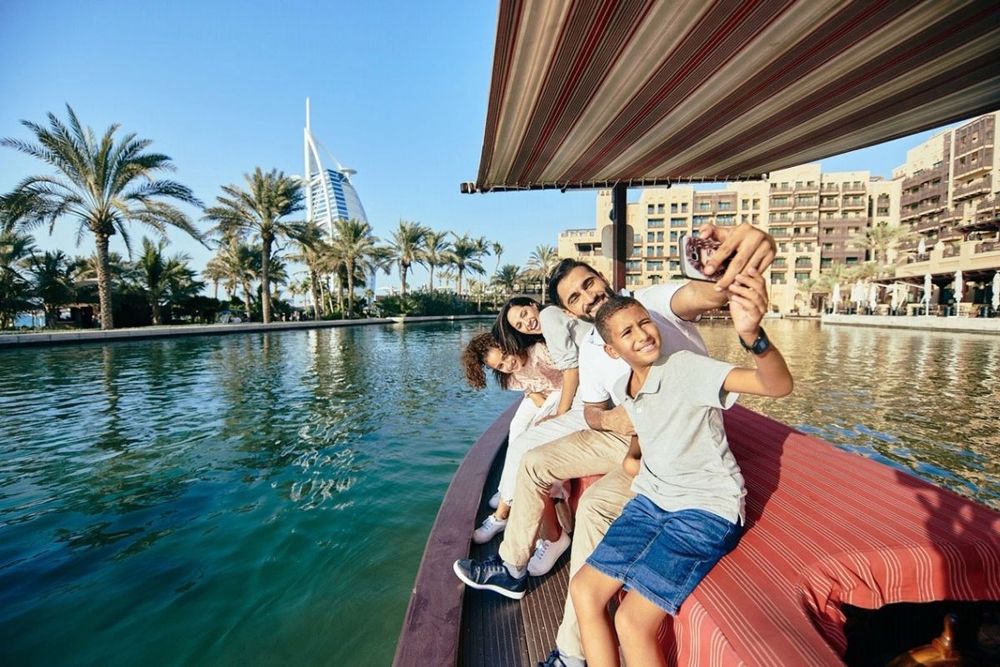The Emirates Tourism Council has reviewed the national plans to develop a tourism data system in accordance with the best global practices to promote tourism in foreign markets to increase the footfall of visitors in the UAE.
The first Council meeting in 2022, which met under the chairmanship of Dr. Ahmad Belhoul Al Falasi, Minister of State for Entrepreneurship and SMEs, and attended by the membership of heads, directors of all local tourism departments and entities in the UAE, also reviewed the performance of the tourism sector and hotel establishments in the country in 2021 and the growth rates achieved in several tourism indicators, reported Emirates News Agency WAM.
According to the data, hotel establishments in the country hosted 19 million visitors in 2021, with a growth of over 29 percent compared to the number of visitors in 2020. Domestic tourism accounted for 58 percent of the total visitors number last year in the UAE. Hotel establishments last year generated revenues of AED28 billion, witnessing a growth of up to 70 percent compared to 2020.
Over the past year, more than 75 million hotel stays have been booked, up 42 percent compared to 2020, while the hotel occupancy rate reached 67 percent, which is the highest rate ever achieved in leading tourist destinations worldwide. The number of hotel establishments in the UAE increased by 5 percent in 2021 to 1,144 establishments compared to 2020. During the same period, the number of hotel rooms increased by 8 percent, up to 194,000 rooms across the UAE.
Al Falasi asserted that the UAE’s tourism sector continues to achieve outstanding results due to the vision and directives of the wise leadership and the concerted national efforts to develop the country’s tourism environment by providing integrated tourism products and services that enhance the UAE’s position as a preferred and sustainable tourist destination for tourists from within the country and around the world.
Al Falasi stated that these positive results demonstrate the efficiency of the policies adopted by the UAE to support and develop the national tourism sector, and that many of these indicators are approaching pre-pandemic growth rates.
”This shows a full recovery of the national tourism sector and confirms the positive direction it is increasingly achieving,” he said, adding that these results are the product of the concerted government efforts and the efficiency of the private tourism sector to provide an attractive and secure national tourist environment, leading and integrated tourism services, diverse and unique destinations, and advanced tourism infrastructure.
Al Falasi also noted the importance of major events and initiatives organized by the UAE during the past phase in achieving these results and providing national tourism with great developmental potential.
”Expo 2020 Dubai attracted more than 24 million visitors in 6 months, and the second edition of the ‘most beautiful winter in the world’ campaign, which generated revenues of AED 1.5 billion, attracted over 1.3 million domestic tourists in just one and a half months,” he said.
In addition, the Council showcased the efforts of the stakeholders in the Tourism Satellite Account (TSA), with Al Falasi reiterating the importance of all relevant stakeholders working in synergy to support the TSA project and provide the technical infrastructure and human resources necessary for its development.
The UAE has also signed a partnership and coordination agreement with the United Nations World Tourism Organisation to support the development of this statistics system. Moreover, the TSA will contribute to increasing the efficiency of the country’s tourism statistics system by measuring the economic indicators of the tourism sector and its contribution to the national economy and the labour market.
UAE reviews plans to develop tourism data system


